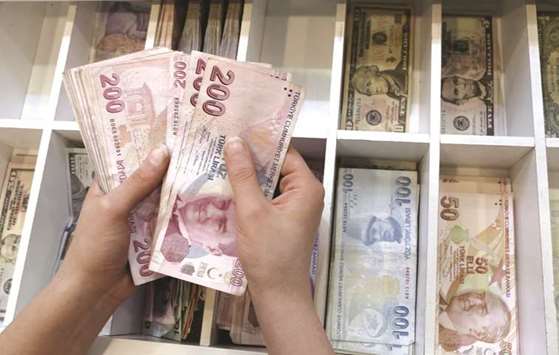Turkey’s central bank left interest rates unchanged yesterday after inflation rose, keeping monetary policy tight.
The bank is tasked with balancing inflationary pressures with President Tayyip Erdogan’s calls for lower rates.
Erdogan, who wants banks to lend more at lower rates to stimulate the economy, has described himself as an “enemy” of interest rates.
For the third straight meeting, the bank kept its late liquidity window, the highest of the multiple instruments it uses to set policy, at 12.25 % and its benchmark repo rate at 8 %.
All 17 economists polled by Reuters had forecast it would leave the rates unchanged.
“Current elevated levels of inflation and developments in core inflation indicators pose risks on the pricing behaviour,” the bank said in a statement following its policy-setting meeting. “The central bank will continue to use all available instruments in pursuit of the price stability objective.”
Annual inflation rose more than expected, to 10.68%, last month, fuelled by rising transport costs and the prices of core goods and services.
Inflation has now been in double digits for six out of eight months this year and remains one of Turkey’s most pressing economic problems.
Finance Minister Naci Agbal said yesterday it was the government’s duty to take measures that would bring down interest rates, and that rates would fall in tandem with a decline in inflation.
“Nobody can say that the interest rates are low in Turkey, they are high,” Agbal told broadcaster AHaber before the rates announcement. “Lower rates are of benefit to economy, the real sector and even banks. And I hope we will achieve them.”
Unlike previous comments from government ministers, Agbal did not appear to be putting direct pressure on the central bank.
The lira firmed to 3.4479 against the dollar after the announcement, compared with 3.4580 beforehand.
Following a failed coup attempt last year, the government has rolled out a series of measures to bolster growth, including temporary tax cuts and the expansion of a programme to guarantee loans to smaller businesses.
While the economy is undeniably recovering — government ministers expect growth to exceed 5% this year versus a revised 3.2% last year — economists have voiced some concern about rising prices.
Nevertheless, the bank could start easing policy in the coming months, said William Jackson of Capital Economics in London. “With inflation set to ease and growth likely to slow, and government pressure for lower rates starting to build, we think monetary policy will be eased over the next three to six months,” Jackson said in a note to clients.
The bank also kept its overnight lending rate at 9.25% and overnight borrowing rate at 7.25%, as expected.

A money changer counts Turkish lira bills at a currency exchange office in central Istanbul. As Turkey’s economy is undeniably recovering, government ministers expect growth to exceed 5% this year versus a revised 3.2% last year.
